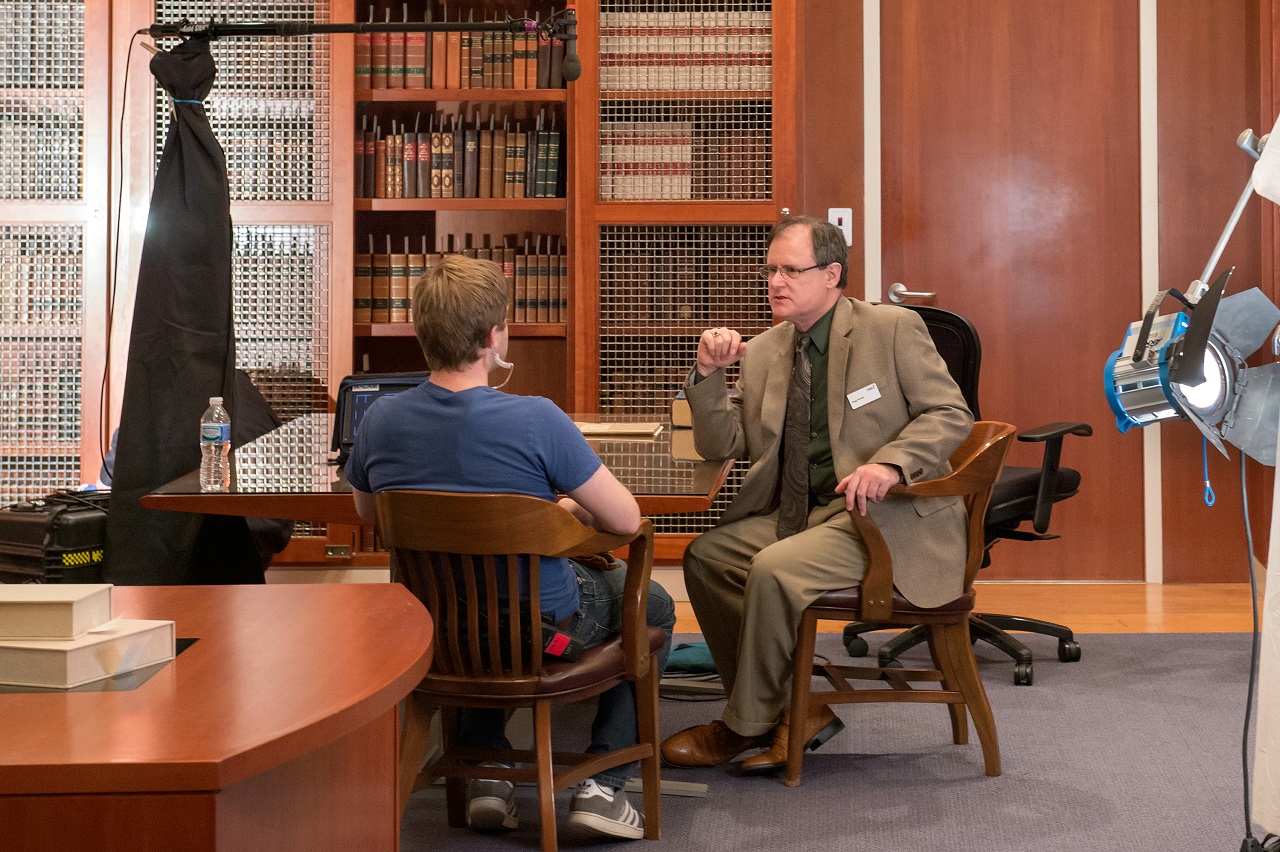”“All eastern Virginians are Shintoists under the skin. Genealogy makes history personal to them in terms of family. Kinship to the eighth degree usually is recognized.”
Douglas Southall Freeman“The Spirit of Virginia,” in Virginia: A Guide to the Old Dominion
Those born in Virginia (or those who have lived here for any length of time) will either nod approvingly or roll their eyes at this quip by the famed historian and biographer Douglas Southall Freeman. The mind easily turns to Virginians bowing down at the sacred altars of their ancestors. Being a New Englander with a long lineage in this country, I can appreciate the sentiment. My own father at one time presided over the Kimball Family Association, which, because of Brigham Young’s lieutenant Heber Kimball from Vermont, likely has as many members in Utah as in New England. And we know that genealogy is serious business there!
But it was not always so. America’s complicated relationship with family history stems from our founding, when the new country’s leaders consciously threw off the chains of hereditary rights and aristocracy. George Mason asserted this sentiment in the Virginia Declaration of Rights of 1776:

“That no Man, or Set of Men are entitled to exclusive or separate Emoluments or Privileges from the Community, but in Consideration of public Services; which not being descendible, neither ought the Offices of Magistrate, Legislator, or Judge, to be hereditary.”
Republican America asserted that advancement should be through merit, perseverance, and hard work. The Horatio Alger ideal of social advancement through dint of pluck and brains has persisted despite obvious signs that even in America your surname can surely matter. Cue the Vanderbilts, Rockefellers, and DuPonts. Not a true aristocracy lineage perhaps, but surely hereditary economic and political power.
So how did America become a nation with thousands of hereditary and family societies and millions of people involved in genealogical research? One factor was the need for the citizens of a new nation to develop and sustain a creation story through organizations such as the Daughters and Sons of the Revolution (both of my parents belonged). It was inevitable that a new country would search for a usable past. In America, the onus on ties to the old country increasingly faded and families searched Europe for their ancestors, even making up family coats of arms (as mine did).

The author (right) preparing for filming.
Sadly, American genealogy in the late 19th and early 20th centuries also had a dark side—the desire for those of “Northern European stock” to separate themselves from the immigrants pouring into America and from people of African descent. Virginia was particularly tainted by this connection to the eugenics movement. Walter Plecker, head of the state’s Department of Vital Statistics, attempted to prove through genealogy that Virginia’s Indians no longer existed and also asserted that all Virginians were either “white” or “colored.” Taking this argument to the heights of absurdity, an exemption was made for “First Families of Virginia” who claimed descent from Pocahontas.
Luckily, genealogy has changed in our time into a much healthier and more egalitarian pursuit. For me, the term “family history” evokes this transformation. Rather than an obsession with drawing a line to the past’s famous people, most researchers are truly interested in their ancestor’s stories and the times in which they lived. This context allows us to appreciate all of our ancestors—whether scoundrels or saints, high-born or low—as part of the complete story of our past. Emblematic of this change, this year the African American Genealogical and Historical Society will meet in Richmond. As the first landing place in British North America of Africans, and as the greatest exporter of people in the domestic slave trade, Virginia is ground zero for researching the stories of African American families.
Tune in to watch the episode of Who Do You Think You Are? that was filmed partly at the Library of Virginia on Sunday, April 19 at 10:00 PM (9:00 central) on TLC.
–Gregg Kimball, Director of Public Services and Outreach







Nicelydone, but you neglect to state who the subject of the broadcast might be. Is that intentional, in order to compel us to tune in? Though I just noticed the name in the tags at the bottom, and only made the connection after checking TLC’s website.
But your observations of the evolving approach to a family history that takes in “scoundrels or saints, high-born or low” — was perfectly stated. Personally, I like the scoundrels and misfits; they make this pursuit so much more interesting.
Mr. Ballard,
Yes, we were trying to be a bit circumspect to invite interest, but given that other outlets have recently revealed the subject of the segment, our mysteriousness is for not. Stay tuned for an Out of the Box post on Monday with additional behind-the-scenes details on the segment.
Oh, and the editors of Out of the Box certainly agree that the scoundrels are MUCH more interesting!
Thanks for reading!